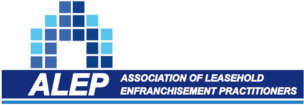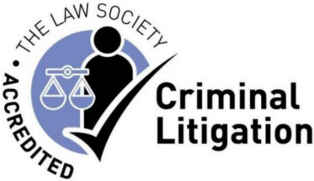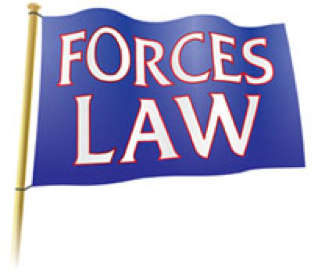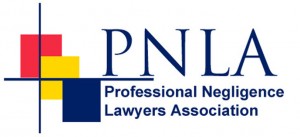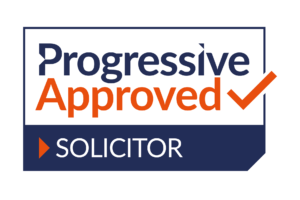Our Specialist Hampshire Inquest Legal Advice
Here at Hampshire solicitors Bonallack and Bishop, we offer a highly specialist inquest service and our team often represent families in Inquest hearings in Coroners Courts throughout the county.
We regularly provide this service under what is known as a conditional fee or No Win No Fee agreement. That means you don’t have to worry about the cost. What’s more, up to now, our team we have been successful in recovering legal costs for those we represented in each Coroner’s Inquest we have attended.
Worried about an inquest? Put your mind at rest. Call or email us now on FREEPHONE 0800 1404544 for FREE initial phone advice
What is a coroner?
A coroner is a public official (usually a trained lawyer or physician) appointed for the purpose of investigating deaths, which are particularly violent, suspicious or occur in prison custody.
If a doctor believes that the cause of death is unclear, they are under a duty to report this to the coroner who will then begin the investigation.
An investigation by a coroner involves a post-mortem and in many cases an inquest.
What is a post-mortem?
A post-mortem is the medical examination of a body by a pathologist.
These are usually requested by the coroner and are undertaken at the hospital where the deceased was held in the mortuary.
If the post-mortem does take place at the request of the coroner, then the relatives are entitled to have a doctor present in order to represent their interests.
Permission will be sought if the labs need to keep any organs or tissue for further analysis.
The post-mortem should reveal the exact cause of death, which will then allow the doctors to presume if it is suspicious or not.
If the post-mortem reveals that the death was by natural causes, then the coroner will complete a ‘Pink Form B’ and the death can be registered accordingly. If not however then the coroner should be able to issue an order for burial or cremation so that the funeral can go ahead.
Can I request a post-mortem?
Although permission from the relatives is not needed for a post-mortem ordered by a coroner, relatives are able to request a post-mortem themselves if they think fit.
Does a post-mortem affect funeral arrangements?
As the post-mortem is usually conducted a couple of days after the date of death it should not affect any funeral arrangements for the deceased.
But in the worst-case scenario, the funeral may have to be delayed very slightly. The post-mortem should reveal the exact cause of death, which will then allow the doctors to presume if it is suspicious or not.
What is an inquest?
When the death remains in doubt, the coroner will conduct an inquest.
An inquest takes place in the coroner’s court and usually the coroner will sit alone. However, if the death is considered to be a result of murder, manslaughter or road traffic accident then it may be necessary for a jury to be present.
Depending on the individual case the inquest can be reasonably lengthy. In order to proceed with sorting out financial affairs for example claiming benefits or paying national insurance, a coroner is able to issue an ‘Interim Certificate of the Fact of Death’ or a letter confirming the deceased date of death. These are legal documents that you can use for such purposes.
Common subjects of inquest
Amongst the more common cases where an inquest is held are the following
- Cases where the cause of death is unknown
- Any sudden or and unexpected death
- Death from violent injury, accident or poisoning
- Any fatality during surgery or recovery from anaesthetic.
- Death at work or caused by an industrial disease
Is an inquest like a trial?
No, a coroner’s inquest is not a trial. It does not have legal submissions, a defendant, and prosecution or assign blame in any way.
Instead, the inquest involves looking at medical evidence and calling expert witnesses. It is conducted for the purpose of concluding how the death was caused and thus can provide the basis for a legal claim.
Can I attend an inquest?
The relatives of the deceased are informed when an inquest is taking place and can usually attend.
The following people are entitled to ask questions during the inquest regarding the medical evidence:
- parents
- spouse
- child,
- remaining relatives
- a beneficiary under an insurance policy or the insurer,
- a trade union representative
- a person of authority (such as a Senior Police Officer).
Do I need a solicitor to represent me at an inquest?
No. It is not necessary for the family to obtain legal representative for an inquest.
However we have consistently found that many families unsurprisingly find the inquest process deeply upsetting – and that’s why they often prefer to be represented by us. But ultimately the decision on whether to attend with or without a solicitor is up to you.
But even if you decide to attend inquest without a solicitor, you may still want legal advice beforehand, and after the inquest if there is a possibility for a compensation claim arising out of the death of your loved one.
What happens at the end of an inquest?
A full death certificate will be issued at the conclusion of the inquest. This certificate will be sent to the registrar so that he can then register the death accordingly.
The Hampshire Coroner’s Office
Hampshire has three separate coroner’s offices – covering different parts of the county.
Their staff are usually very helpful and will be able to go through the Inquest procedure with you. However, they are not permitted to provide you with any legal advice.
Here are their contact details and the areas of the county they cover:
Central Hampshire, Southampton & New Forest (Covering Southampton, New Forest, Winchester, Eastleigh, Andover and Romsey)
Castle Hill
The Castle
Winchester SO23 8UL
01962 667884
western-hampshire.coroners@hants.gcsx.gov.uk
Open Monday to Friday 8am – 4pm
North East Hampshire (Covering Basingstoke, Alton, Fleet, Farnborough and Aldershot)
Goldings
London Road
Basingstoke RG21 4AN
01256 478119
andrew.bradley@hants.gov.uk
Open Monday to Friday 8.30am – 4.30pm
South East Hampshire and Portsmouth (Covering Portsmouth, Havant, Fareham, Gosport and Petersfield)
The Coroners Court
1 Guildhall Square
Portsmouth PO1 2AJ
023 9268 8326
coroners.office@portsmouthcc.gov.uk
Open Monday to Friday 9am – 4.30pm
Need Help with a Hampshire Inquest? Contact us today.
Losing a loved one in an accident or in suspicious circumstances can be incredibly hard. So don’t hesitate in asking us for help.
For legal advice from our specialist lawyers, contact us today.
- By phone on FREEPHONE 0800 1404544 or
- By emailing us using the contact form below
Bonallack and Bishop, Bonallack and Bishop
Suite 1, Healey House, Dene Road, 5, Provost Street
Andover Fordingbridge
Hampshire Hampshire
SP10 2AA SP6 1AZ
Our Andover Office

